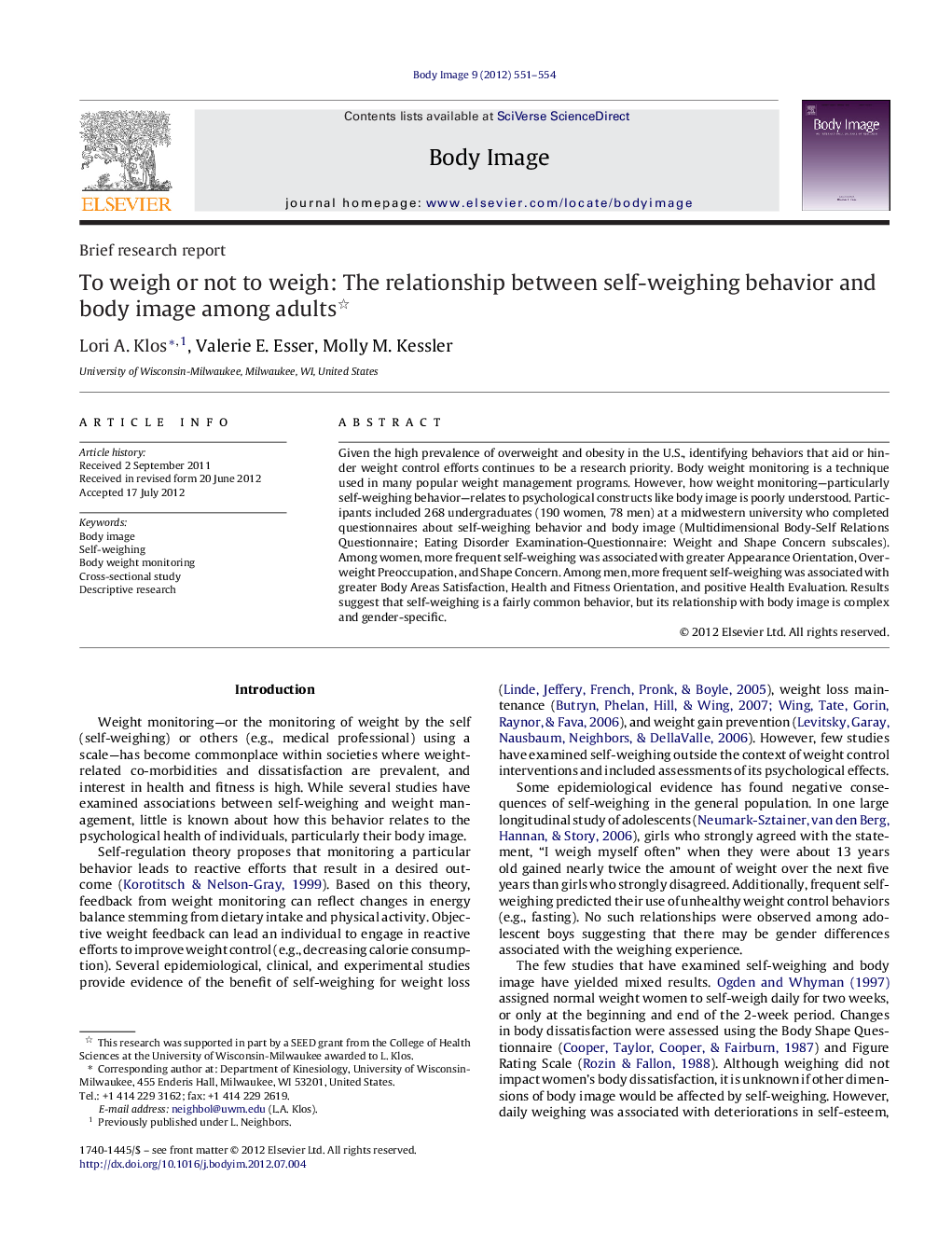| Article ID | Journal | Published Year | Pages | File Type |
|---|---|---|---|---|
| 903069 | Body Image | 2012 | 4 Pages |
Given the high prevalence of overweight and obesity in the U.S., identifying behaviors that aid or hinder weight control efforts continues to be a research priority. Body weight monitoring is a technique used in many popular weight management programs. However, how weight monitoring—particularly self-weighing behavior—relates to psychological constructs like body image is poorly understood. Participants included 268 undergraduates (190 women, 78 men) at a midwestern university who completed questionnaires about self-weighing behavior and body image (Multidimensional Body-Self Relations Questionnaire; Eating Disorder Examination-Questionnaire: Weight and Shape Concern subscales). Among women, more frequent self-weighing was associated with greater Appearance Orientation, Overweight Preoccupation, and Shape Concern. Among men, more frequent self-weighing was associated with greater Body Areas Satisfaction, Health and Fitness Orientation, and positive Health Evaluation. Results suggest that self-weighing is a fairly common behavior, but its relationship with body image is complex and gender-specific.
► We examine the associations between self-weighing behavior and body image. ► The frequency in which young adults self-weigh varies widely. ► Frequent self-weighing is associated with several dimensions of body image. ► There are gender differences in the self-weighing–body image relationship.
